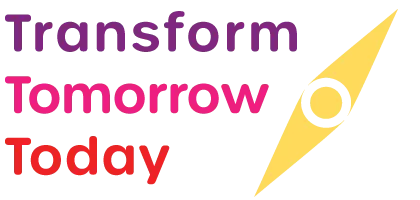Let’s face it—year-end budgets can feel like a complex puzzle. You’ve got funds left over, but the clock is ticking to utilize them effectively. Sound familiar? You’re not alone—about 30% of HR departments find themselves in this exact situation, often due to shifted priorities, unexpected hiring changes, or the ripple effects of transitioning to remote work environments. These challenges can disrupt initial plans and leave departments scrambling to allocate funds efficiently.
HR Leaders have unused funds at the end of the year that, if left unused, can impact next year’s budget in negative ways.
But here’s the good news: those leftover funds aren’t merely numbers languishing on a spreadsheet—they’re untapped opportunities waiting to be seized. This guide will walk you through how to transform those year-end dollars into strategic investments that continue to yield benefits long after December has passed.
Our secret weapon lies in the data found in performance reviews. Not the outdated, once-a-year conversations that everyone dreads but revamped, dynamic processes that serve as springboards for real growth and development. By re-examinig how reviews drive future growth, organizations can identify areas for improvement, reward high performers, and set actionable goals that drive success. Let’s dive deeper into how you can harness the full potential of your people to cultivate a thriving workplace culture and maximize your budget for the future.
Remember the last time you got feedback without any clear next steps? Frustrating, right? Gallup’s research backs this up – employees who receive actionable feedback are three times more engaged. Let’s turn those “good job” conversations into real game plans.
Action Steps:
Well structured employee development programs experience 34% higher retention rates
Here’s a number that might surprise you: companies with well-structured employee development programs experience 34% higher retention rates. This is because when employees notice that their company is genuinely invested in their personal and professional growth, they are more likely to remain loyal. Such programs often include opportunities for skills enhancement, career path counseling, and regular feedback sessions, all of which contribute to a more satisfied and committed workforce.
Action Steps:
Want to hear something interesting? Employees who have access to professional coaches are 28% more likely to stay with their current employer. This statistic highlights the significant impact that coaching can have on employee retention. Investing in coaching not only enhances skills but also fosters a sense of loyalty and satisfaction, which is huge for any organization aiming to maintain a committed workforce.
Action Steps:
McKinsey reports that 87% of executives anticipate skill gaps emerging in their organizations. This highlights the urgency for businesses to proactively address these gaps. The smart move? Develop strategies and training programs to get ahead of them, ensuring your team is equipped to meet future challenges head-on.
Action Steps:
Want to know something cool? Companies that invest in upskilling their employees often see up to 60% more flexibility in their workforce. This increased adaptability allows organizations to respond more effectively to changes in the market and industry demands. That’s the kind of agility every organization needs to remain competitive and thrive in today’s fast-paced business environment. By focusing on continuous learning and development, businesses can better prepare their teams for future challenges and opportunities.
Upskilling initiatives transform employees into highly adaptive problem solvers.
Action Steps:
Let’s cut to the chase – McKinsey found that companies crushing it at DEI are outperforming others by 36% in profitability. That’s not just good karma – it’s good business. And those year-end dollars? They could be your rocket fuel for real change.
Action Steps:
DEI is a profit center, and it’s easy to see why. Leveraging diverse points of view drive innovation, collaboration, and a 36% increase in profitability.
Good news: meaningful DEI initiatives don’t always need massive budgets. Sometimes the most impactful changes come from smart, targeted investments.
Action Steps:
Here’s the truth – one-and-done DEI initiatives rarely stick. The secret sauce? Consistent, year-round attention (and yes, budget).
Action Steps:
Let’s be real—nobody needs another system that makes simple things harder and more complicated. Many businesses have experienced frustration with technology that only adds layers of difficulty to basic tasks. However, a study by Deloitte found that organizations implementing the right HR technology see a significant 20% increase in efficiency. This improvement can lead to more streamlined operations, better employee management, and ultimately, a more productive workforce. The key word here? “Right.” It’s crucial to choose technology that truly meets the organization’s needs and integrates seamlessly into existing workflows.
Action Steps:
End-of-year budget can be perfect for tech upgrades, but let’s make sure we’re not just buying shiny new toys.
Action Steps:
The world’s best system is useless if no one logs in. Companies that nail tech adoption see a 25% drop in time spent on reviews. Let’s make that happen.
Action Steps:
Look, we’ve covered a lot of ground here. From transforming those yawn-inducing performance reviews into actual growth catalysts, to making DEI more than just letters on a poster, to picking tech that doesn’t make everyone want to throw their laptops out the window.
Remember:
Your Ready-to-Rock Checklist
We have a special offer on the next page.

Get 2-for-1 pricing on six transformative months of personalized learning paths and on-demand coaching (offer expires Dec 31st)
SkillCycle’s 2025 Jumpstart package turns end-of-year budget surpluses into lasting development opportunities. Each employee gets a personalized learning path and on-demand access to expert coaches who help turn plans into progress. No more hoping that one-off training sessions stick — this is guided, continuous growth that compounds through June 2025.
Transform Your Investment Into Impact:
